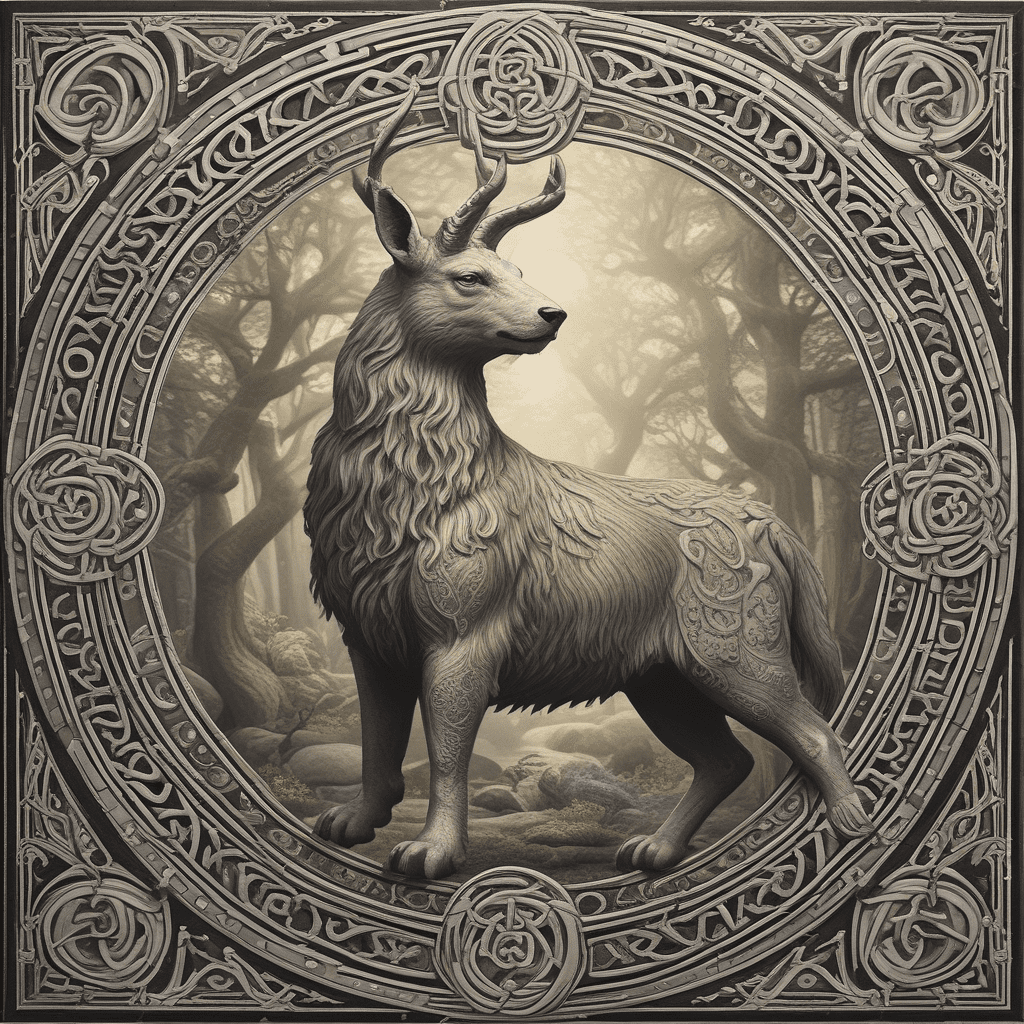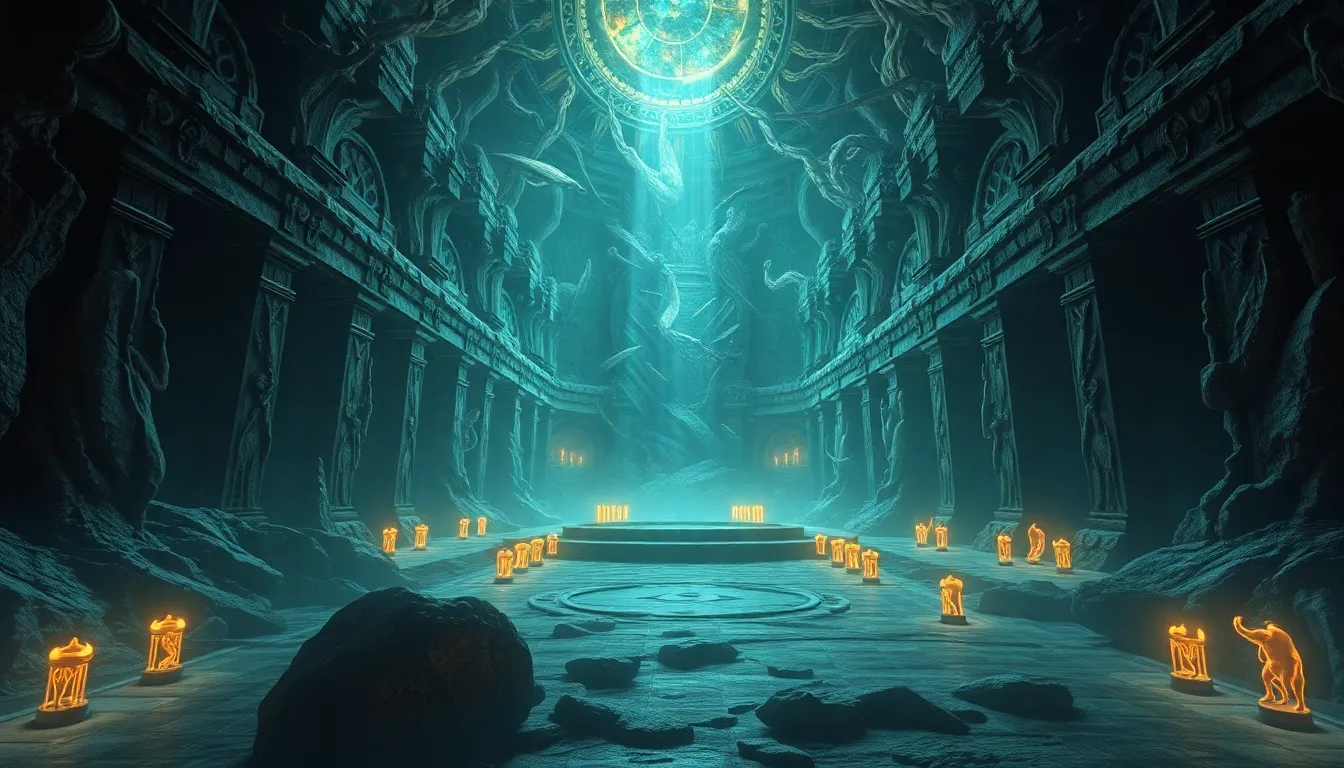The Mountain of the Cosmic: Legends of Universal Connections
I. Introduction
The term “Mountain of the Cosmic” refers to a metaphorical and sometimes literal representation of mountains that connect humanity to the universe and the divine. These mountains are often seen as sacred spaces where the earthly and the celestial converge, serving as gateways to higher realms of existence. Across various cultures, the concept of universal connections is prevalent, illustrating how humanity perceives its place in the cosmos.
This article aims to explore the rich tapestry of legends and beliefs surrounding the Mountain of the Cosmic, delving into historical contexts, cultural symbolism, and the interplay between myth and modern science.
II. Historical Context of Cosmic Mountains
Throughout history, ancient civilizations have ascribed profound significance to mountains, often viewing them as sacred entities that represent a connection to the cosmos.
A. Ancient civilizations and their interpretations of cosmic mountains
- Mesopotamian beliefs: In ancient Mesopotamian culture, mountains were often seen as the dwelling places of gods. The ziggurats, pyramid-like structures, were built to connect the earth with the heavens.
- Hindu mythology and Mount Meru: Mount Meru is considered the center of all physical, metaphysical, and spiritual universes in Hindu cosmology. It is often depicted as a sacred mountain surrounded by the oceans of the world.
- Greek mythology and Mount Olympus: Mount Olympus, the highest mountain in Greece, was believed to be the home of the Olympian gods. It symbolized the divine authority that governed the world.
The role of mountains in spiritual and religious practices is evident as they serve not only as physical landmarks but also as metaphysical symbols of higher consciousness.
III. The Symbolism of Mountains in Various Cultures
Mountains hold a special place in the collective human consciousness, representing various themes and ideas that transcend cultural boundaries.
A. Mountains as gateways to the divine
Many cultures view mountains as portals to the divine, places where the earthly realm meets the spiritual. Pilgrimages to these peaks are often undertaken to seek enlightenment and connection with the divine.
B. Mountains as symbols of enlightenment and transcendence
In numerous traditions, climbing a mountain symbolizes the journey towards enlightenment, where the ascent represents overcoming challenges and reaching higher states of awareness.
C. The duality of mountains: both physical and metaphysical representations
Mountains serve as both physical landmarks and metaphysical symbols, embodying the dual nature of existence—grounded yet aspiring toward the heavens.
IV. Legends and Myths of the Mountain of the Cosmic
Various cultures have their own legends surrounding cosmic mountains, each rich with symbolism and significance.
A. Overview of prominent legends from around the world
- The Cosmic Mountain in Native American traditions: Many Native American tribes view certain mountains as sacred. For instance, Mount Shasta in California is considered a spiritual center and a place of power.
- The Tibetan Buddhist view of Mount Kailash: Mount Kailash is revered as the abode of Lord Shiva and represents the axis mundi, the center of the universe in Tibetan Buddhism.
- The significance of mountains in Indigenous Australian stories: In Aboriginal mythology, the Dreamtime stories often involve mountains as sacred sites that hold the history and spirituality of the land.
B. Common themes and motifs across different legends
Across these various legends, common themes emerge, such as the idea of mountains as places of creation, transformation, and divine encounters.
V. The Intersection of Science and Myth
In contemporary times, the exploration of cosmic connections has taken on new dimensions through the lens of science.
A. Modern interpretations of cosmic connections
Astrophysics and cosmology provide modern frameworks for understanding the universe, often echoing ancient beliefs about interconnectedness and the nature of existence.
B. The role of astrophysics and cosmology in understanding universal connections
Scientific discoveries, such as the interconnectedness of galaxies and the fabric of space-time, resonate with ancient myths about the unity of all things.
C. The relationship between ancient beliefs and contemporary scientific discoveries
There is a fascinating dialogue between ancient wisdom and modern science, as both seek to understand the universe and humanity’s place within it.
VI. Personal Journeys and Pilgrimages to Cosmic Mountains
Many individuals embark on pilgrimages to cosmic mountains seeking spiritual growth and connection.
A. Notable pilgrimage routes and their significance
- The Camino de Santiago in Spain, which leads to the shrine of the apostle Saint James.
- The Kora around Mount Kailash, a journey believed to bring spiritual merit.
- Mount Fuji in Japan, a site of pilgrimage for centuries, symbolizing beauty and spiritual awakening.
B. Testimonials from individuals who have sought spiritual connections through these journeys
Many pilgrims report profound transformations, describing their experiences as life-changing, offering insights into their purpose and connection to the cosmos.
C. The impact of these experiences on personal belief systems
These journeys often lead to a reevaluation of personal beliefs and a deeper understanding of one’s place in the universe.
VII. The Influence of Literature and Art
The concept of cosmic mountains has also permeated literature and art, shaping cultural narratives and perceptions.
A. Depictions of cosmic mountains in literature
From classical texts to contemporary novels, cosmic mountains are often depicted as places of adventure, enlightenment, or transformation.
B. Artistic interpretations and their cultural significance
Artists have long drawn inspiration from mountains, using them to symbolize the sublime, the divine, and the quest for meaning.
C. How these representations shape public perception of universal connections
Art and literature serve as powerful mediums for conveying the significance of cosmic connections, encouraging public engagement with these timeless themes.
VIII. Contemporary Spiritual Movements Inspired by Cosmic Legends
In recent years, there has been a resurgence of interest in ancient wisdom, leading to the rise of New Age beliefs and practices.
A. Rise of New Age beliefs and practices
Many modern spiritual movements draw from the symbolism of cosmic mountains, integrating these ideas into contemporary practices such as meditation and mindfulness.
B. Integration of ancient wisdom into modern spirituality
Practitioners seek to blend traditional teachings with modern insights, fostering a deeper understanding of spirituality.
C. Global communities fostering connections through shared experiences
Communities around the world are forming to explore these themes collectively, celebrating the interconnectedness of all beings.
IX. The Relevance of Cosmic Connections Today
As we navigate the complexities of modern life, the concept of cosmic connections remains relevant.
A. The role of cosmic mountains in environmental awareness and conservation
Mountains serve as reminders of the beauty and fragility of our planet, inspiring movements for conservation and environmental stewardship.
B. The importance of maintaining cultural heritage and legends
Preserving the stories and beliefs surrounding cosmic mountains is vital for cultural identity and continuity.
C. How universal connections can inform personal and collective identities
Understanding our connection to the cosmos can empower individuals and communities, fostering a sense of belonging and purpose in a shared universe.



